Myths about horses, like other animals who share our life are still being passed around because of tradition, folklore and wives’ tales.
Do you believe any of these 7 myths about horses?
Myth About Horses #1: Horses are Not Intelligent
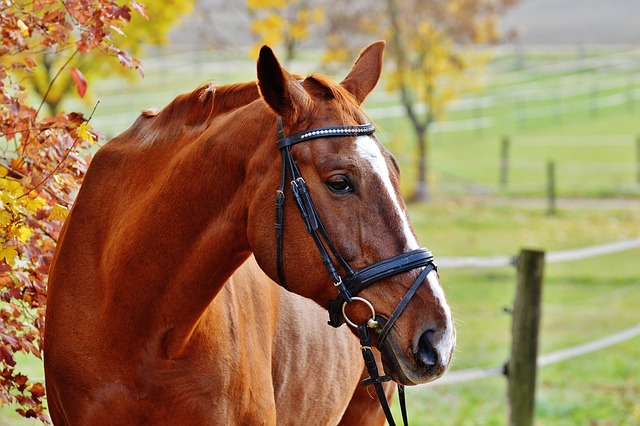
Just because a horse doesn’t follow your commands, it has nothing to do with its overall intelligence! Like most animals we train, horses must be trained to understand a series of instructions. But it’s also critical for the trainer to be a good communicator so the horse (or any other animal) clearly understands what you want. It’s a two-way street when it comes to communicating and training. Just as your horse learns to read your body language, effective training requires your understanding of the horse’s body language and behaviors.
Myth #2: Horses are Just Big Dogs
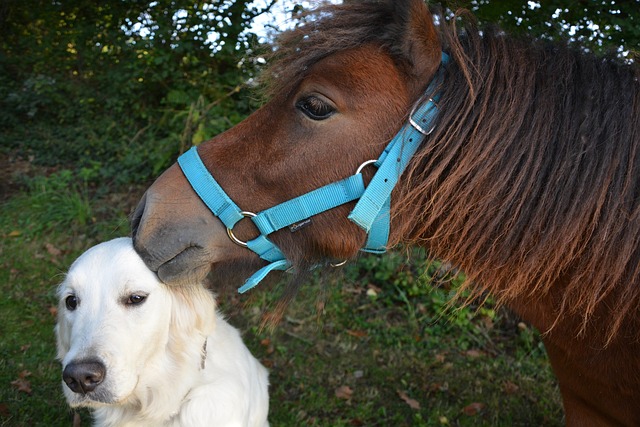
The short answer is no. Horses are not like “big dogs” for several reasons.
- They have a much different social structure. Living in bands (or harems), the core of the group is the mare, including a boss mare who’s in charge. Even if the adult males leave or die, the same mares will stay together.
- In the wild, horses understand they are vulnerable prey to hunters in nature. While dogs in the wild are predators and meat-eaters.
But it doesn’t mean horses don’t enjoy the company of their owners and snacking on tasty treats! But horses are not “companion animals” in the same way as our dogs.
Myth #3: Horses Only Sleep Standing Up
While horses do sleep a lot while standing up, they do lie down for REM sleep. But since they require very little REM sleep (unlike humans), horses typically spend more time sleeping standing up. Interestingly, horses have a system of ligaments and tendons that keep them upright with ease by “locking” the limbs. This is called the “stay apparatus.”
But why do horses commonly sleep standing up? To get away from predators quickly. Horses in safe and relaxed environments may opt to lie down to sleep more often.
Myth #4: Horse Hooves are Solid
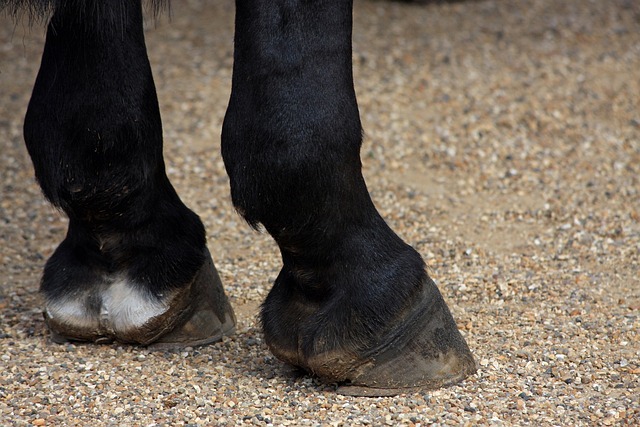
The equine hooves may appear to be solid and tough, but they really aren’t! Their hooves are made of different layers and structures with specific functions. The hoof is quite flexible and acts as a “shock absorber” when the horse moves. Foals are born with soft, squishy hooves so as not to hurt the mare when they are in the womb. Once these soft hooves make contact with air, they begin to dry out and harden within a few hours.
Myth #5: Horses are Colorblind
It’s true that horses (and other animals) see differently than we do. But they can see some colors with their two-color (dichromatic) vision with blue and yellow hues. Other colors will appear as either white or gray.
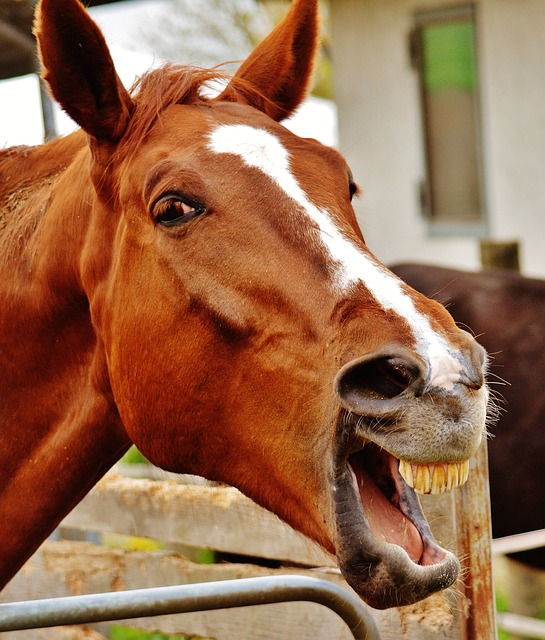
Myth #6: Horses Grin, Smile and Laugh!
Sorry, this one is wishful thinking! Humans love to attribute human characteristics to their animals! This is called anthropomorphism so we can relate to them in a more human way. But horses are not grinning, smiling or laughing. There is a much simpler (and natural) explanation for these behaviors we love so much and it’s called the Flehmen Response. These behaviors are done to intensify the inhalation of nearby odors or scents. The olfactory glands (related to the sense of smell) are deep inside the equine’s nasal passages so these behaviors help open up these glands for a stronger smelling experience.
Myths About Horses #7: Horses with Colic Should Never Lie Down
This one is an old wives’ tale. These sayings are often passed down through generations and accepted as truth when sometimes they are not. It was once thought that a horse with colic who rolled on the ground would twist their intestines. But this is not always the case. Colic can cause a horse’s intestine to twist if they roll, but it doesn’t always happen and many vets don’t always recommend preventing horses to lay down. You may want to stop a horse with colic from rolling on the ground to avoid injury or quicker shock.
Learn about more equine myths and misconceptions.
And here are a few more!
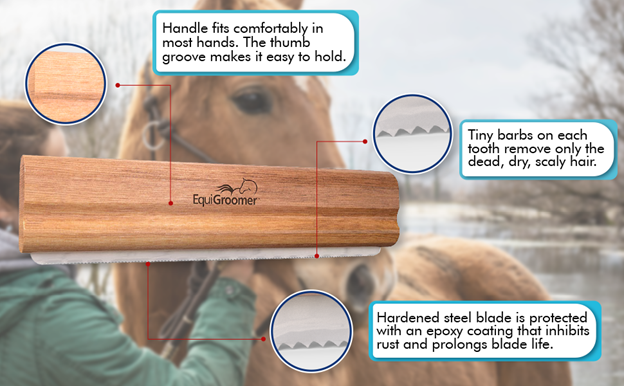
EquiGroomer: Gentle and Comfortable Grooming
for You and Your Horse!
We guarantee your cat, dog, horse, other pets or livestock,
will LOVE the EquiGroomer Grooming Tools!
For individual or bulk orders, call 860-573-0604 or send us an email.

